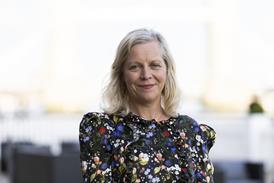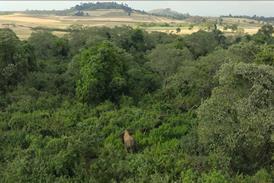You have to be very shrewd, very lucky or have very patient financial backers to make any significant money from the broadcast post-production sector right now. The vice-like grip of the budget squeeze has clamped down hard. The first six months of the year in particular were lean as broadcast commissions dried up.
“There’s definite pressure on the market and broadcast has been hit harder than most,” reports UK Screen chief executive Gaynor Davenport. “There have been business closures and some consolidation. But there’s also been room for expansion by some facilities.”
By contrast, the commercials, short-form graphics and feature film markets remain hot spots, which is perhaps why these areas have been targeted for diversification by some broadcast houses.
“In the face of hardship, managing directors are looking at new opportunities,” notes Davenport. “This includes broadcast visual effects, archive and restoration and overseas markets. It’s harder at the moment to see financial models for new media platforms.”
“There’s no point having a rate card,” contends Rainbow Post managing director Nick Rogers. “Instead of us being able to quote, customers say: ‘We’ve got this much, can you do it?’ This forces people into corners and leads to undercutting.”
Pepper Post managing director Patrick Holzen hopes facility chiefs hold their nerve. “I hope that we can all maintain the margins we’ve built but I fear erosion across the board. It depends on what levels of desperation there are in the industry as to what deals will be negotiated but a price war appears inevitable.”
The past year has seen its share of casualties. Just last week reality specialist Resolution went into administration, citing a downturn in commissions. The company claimed to have pioneered the workflow of location editing for programmes including Big Brother and Fame Academy. Elsewhere, Oasis TV folded in March and was brought to life a few hours later as part of The Sanctuary.
Skaramoosh and Condor Digital were resurrected after collapsing late last year, with the latter only surviving until July. In October Frontier Post bit the dust citing high overheads and falling rates.
Pure start-ups have been thin on the ground while a number of “boutique” spin-offs of larger companies have been reabsorbed to cut costs.
TV Set for growth
But for every failure there are two more houses investing heavily in kit. Some are paying out new leases on ludicrously expensive Soho office space while, with New York property going for a song, others have looked to set up shop there.
No company epitomises the spirit of consolidation more than The TV Set Group where directors Dave Thompson and Terry Bettles spent the year adding breadth and depth to their business.
They acquired music promo boutique Metropolis, the DVD duplication divisions of Suite and Molinare (Click and Figment respectively) and the staff and assets of failed broadcast house Frontier Post. Its biggest deal was the merger of VFX outfit Baraka with TV Set short-form specialist Concrete.
“We were 18 months away from having to sign a new lease on our building when the opportunity to move into The TV Set came along,” recalls Concrete’s joint managing director David Cox. “Concrete had great graphical design which complemented our VFX background so it synchronised perfectly.”
Concrete strengthened its high-end graphics credentials by implementing Quantel’s Genetic Engineering - a high-speed central storage system - as well as a Quantel-based 3D stereoscopic suite in an alliance with Axis Post.
“The reason Concrete invests in new technology is only ever to increase creativity,” says Cox. “In this case, providing immediate access to data across all our suites will significantly reduce waiting times and increase creativity time.”
The 3D suite is Europe’s first and signifies a new revenue opportunity for facilities. Initially in features and corporate production, stereoscopic 3D is likely to spread to wider productions. Each 30-minute episode of new kids animation Orsum Island, for example, is being simultaneously created in 3D by producers Pineapple Squared in order to future-proof the property.


























No comments yet